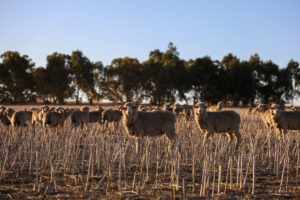The State Government’s haphazard approach to the southern bushfire season has created unnecessary angst for regional volunteers and local governments and threatens to reduce the number of volunteers available and place communities at increased risk as the season begins.
In late November, the Australasian Fire and Emergency Services Authorities Council released their seasonal bushfire outlook, highlighting many parts of WA are at a higher-than-normal fire risk this season.
The bushfire outlook identified three areas with above normal fire potential, including a large part of the South West region, much of the Gascoyne-Murchison, and a section of the Pilbara near Karratha, including Millstream Chichester National Park.
The events of recent days have seen part of these predictions play out, with a significant fire near Margaret River destroying about 8,000 hectares of bushland in Leeuwin-Naturaliste National Park.
I commend the many firefighters and volunteers who worked hard over the past week to contain this fire, and the significant efforts that went into protecting tourism infrastructure, and nearby communities. They have the thanks of all West Australians.
Just days before this fire, the Minister for Emergency Services was quoted in the media saying: “We must be prepared for a horror fire season – high fuel loads and high temperatures are a dangerous combination.”
Yet despite the Minister’s acknowledgement we’re likely to face a busier than usual fire season, WA risks losing hundreds of fire and emergency services volunteers in January as mandatory vaccination requirements and new Work Health and Safety legislation both come into effect.
For several months, I have been pursuing a clear answer from the Government regarding mandatory vaccination requirements for fire and emergency service volunteers. On October 20, the Premier and Chief Health Officer announced a wide range of workforces and industry which would require mandatory vaccination. This list specifically excluded volunteers.
But less than a month later, the Fire and Emergency Service Worker (Restrictions On Access) Directions were issued, requiring all fire and emergency service volunteers to be vaccinated by January 1.
The changing position of the State Government has caused confusion among volunteers and a significant administrative burden on local governments who are responsible for most of WA’s 26,000 emergency service volunteers. This all comes at a time when the southern fire season has commenced, harvest is well underway and with the festive season rapidly approaching.
The implementation of the Work Health and Safety Act next month and a lack of early direction and support from the State Government has only added to the mounting pressure on our emergency service capability this summer.
In some areas of WA, volunteers who have fallen behind on their formal training or unable to access training due to a lack of local delivery are already being stood down.
My office has received much feedback from the local government sector and individual volunteers who are genuinely concerned about being able to respond to bushfires and other emergencies with potentially diminished volunteer numbers from January.
There are many other areas of concern in the emergency services portfolio which suggest the State Government has not been paying attention to this critical portfolio.
Last week in Parliament it was revealed that of the 12 mechanical technicians employed by the Department of Fire and Emergency Services, only two are currently available to work.
This dire shortage of mechanical technicians means repairs to critical firefighting appliances may not occur in a timely manner, leaving firefighters without the vehicles they need and placing communities at increased risk.
Given the State Government’s mammoth $5.8 billion budget surplus, it is concerning they have been unable to address workforce shortages within their own Department.
In recent months, it has become a catch cry of many in Government that the solution to workforce shortages in the agricultural and hospitality sectors is to simply pay staff higher wages. The State Government is either unprepared to follow their own advice, or they have discovered providing higher wages is not the silver bullet solution to the tightly constricted labour market in Western Australia.
On top of this, we are also facing significant delays to fleet replacements; a failure to respond to the Royal Commission into the 2019/20 Black Summer bushfires; and a six-month lag on commencing the Wooroloo bushfire inquiry – and subsequent delays which mean we likely won’t see the final report until sometime in 2022.
These challenges are frustrating for firefighters and other emergency service workers and volunteers and indicate the State Government has taken its eye off the ball this bushfire season.


